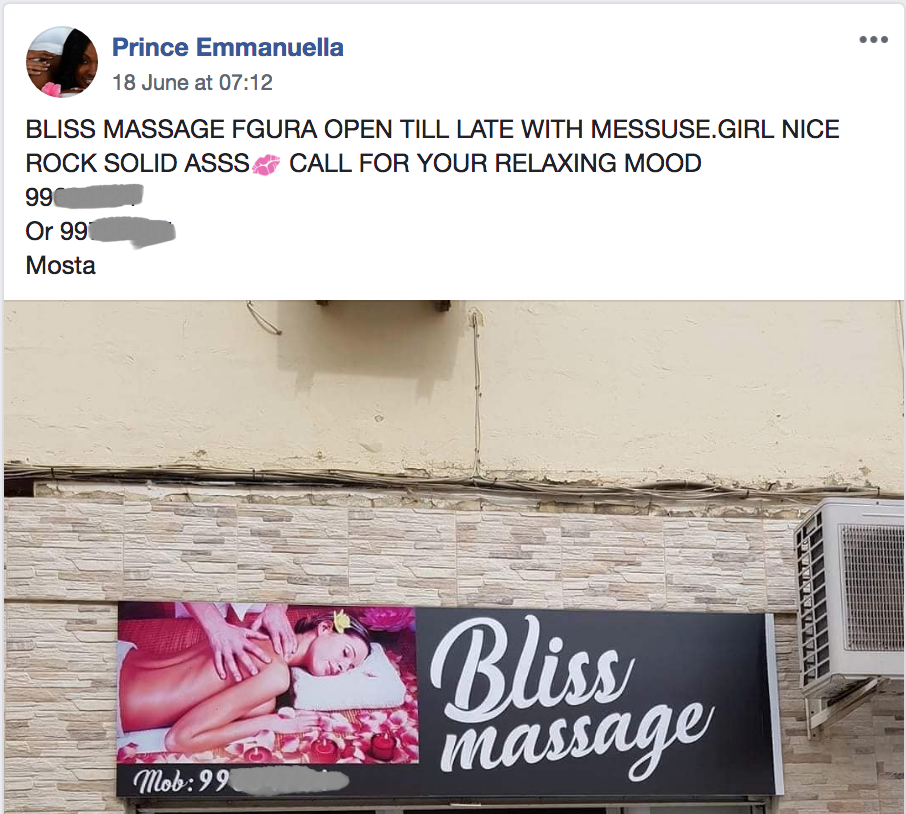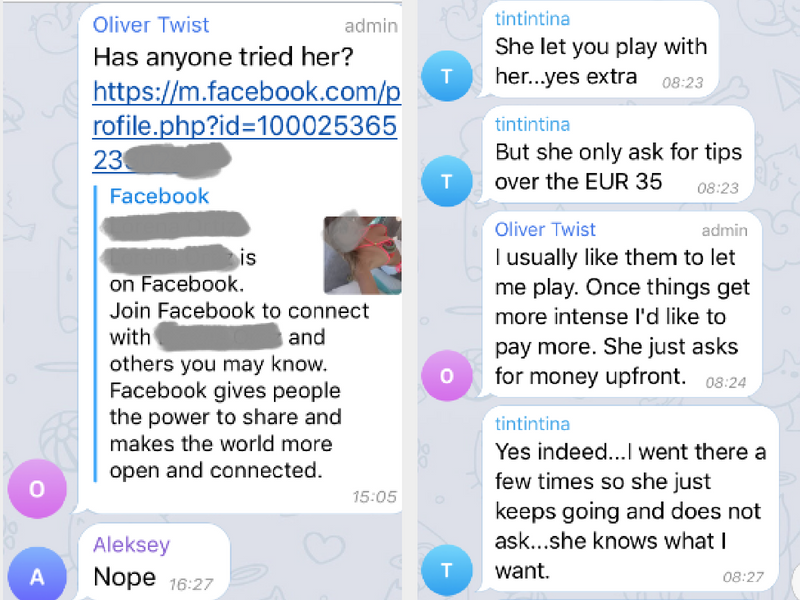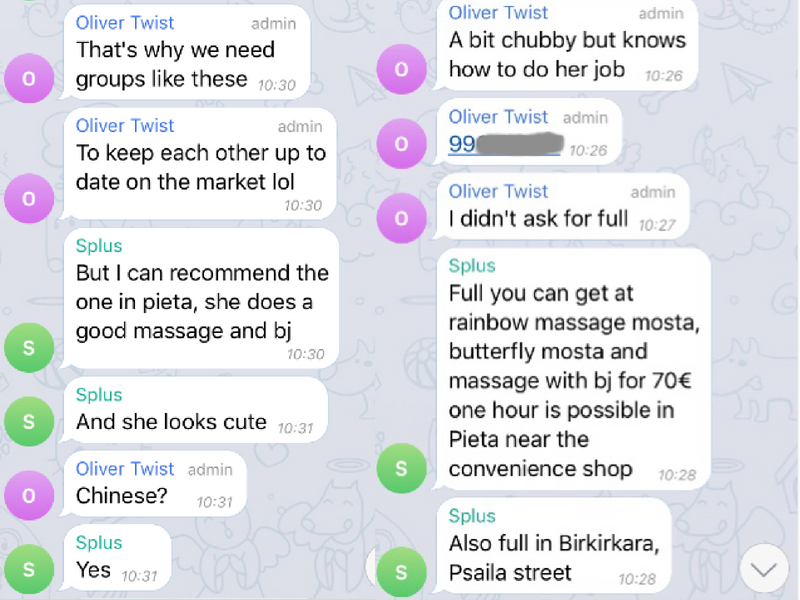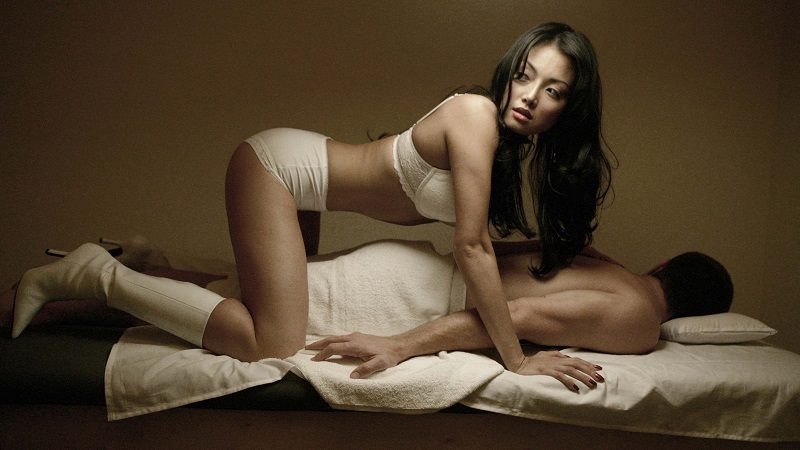A total of 196 massage parlours were licensed in Malta by the end of 2016, according to figures presented in Parliament by economy minister Chris Cardona (of all people). The problem is, that no figures were available after that year – the government removed the need for licences in an industry linked to human trafficking and you have to wonder why.
Cardona, who with PN leader Adrian Delia was a co-director of a company owning the lease on a building used as a brothel in Soho, London, and who is reported to have used a brothel while on official business in Velbert, Germany in early 2017, provided this information in response to a question from PN MP Edwin Vassallo.
Vassallo asked for information up to 2018, but was told by Cardona that information past December 2016 was unavailable as the government lifted the requirement for massage parlours to be licenced – this was news to everyone.

Malta has seen a boom in massage parlours over the past decade, with a concentration in St Julian’s and Sliema and smaller numbers in Gozo, Naxxar, Rabat, Paola and Tarxien.
On 26 June, home affairs minister Michael Farrugia told Parliament there were no reports of parlours being used as brothels.
An investigation by The Shift News found close to 100 online adverts for massage parlours in Malta that bear some or all of the characteristics of illicit activity, including: A rotating roster of women masseuses from Asia, Latin America and Eastern Europe; an exclusively male clientele; hyper-erotic adverts of masseuses with obscured faces; and the provision of “outcalls” (house calls made by prostitutes).
The Shift News also saw secret messages in which parlour clients discussed their sexual activities at various parlours with different masseuse.

The proliferation of massage parlours has raised suspicions they are using trafficked women to provide their clients with sex. This is not a new phenomenon, which is why regulation was considered critical. So, what now?
Malta’s role as a source and destination for women and children subjected to sex trafficking has intensified since 2013, the US State Department says in its latest Trafficking in Persons Report.
It is illegal to live off the profits of someone’s prostitution (pimping) and to traffic people for sex and labour exploitation. These crimes carry prison terms of four to 12 years.
Yet the government’s deregulation of massage parlours since 2016, despite their widely known association with sexual exploitation and human trafficking, has made monitoring parlours close to impossible and allowed illicit massage parlours to boom.
Sources close to the police told the Times of Malta in December 2017 that “enforcement is being hindered by the fact that these places are largely unregulated, it is also an open secret that at times enforcement is being done superficially or only on the strength of reports filed by the victims or suspicious neighbours”.

Some of Malta’s massage parlours are legitimate, providing non-sexual massages, operating within normal working hours, and employing staff under normal conditions. On social media, their staff will say, “I do not do any extras”.
Malta’s sexual health clinic blamed a new trend of older men carrying herpes and genital warts on them having unprotected sex at “Chinese ‘massage’ parlours’”.
The Shift News found that many women are openly advertised by the same massage parlour Facebook accounts, listed with the same mobile phone numbers.
These same Facebook accounts also put up recruitment adverts for “women working in apartments” (and so in need of a parlour base), “mature women” (to meet client-specific demands) and “women for photoshoots”.
The Shift News also found that most advertised women are from Asia, Latin America, and Eastern Europe, where there is a significant and increasing level of human trafficking by organised crime and failure to combat trafficking by governments, according to the US State Department’s 2017 Trafficking in Persons Report.

Despite Malta’s boom in what seem to be illicit massage parlours, the police conducted only 17 “inspections” of massage parlours from 2015 to 2017, resulting in 15 arraignments on charges of human trafficking, sexual exploitation and employment law breaches.
Malta’s role as a source and destination for women and children subjected to sex trafficking has intensified since 2013, the US State Department says in its report.
The US State Department has ranked Malta as a ‘Tier 2’ country since 2012, meaning the Maltese government is failing to meet the Trafficking Victims Protection Act’s minimum standards. The Report highlights that:
- The Maltese government has not secured any human trafficking convictions since early 2012.
- A Maltese police officer convicted in 2012 of colluding with a human trafficker has appealed his conviction, which is still pending.
- The prosecution of a 2004 case involving a police official in human trafficking is still pending.
- As of 2017, there were no new investigations or prosecutions of government employees complicit in human trafficking offences.
- In 2017, the police identified one single female sex trafficking victim. From 2015 to 2017, the government’s annual anti-trafficking budget was €20,000.

Malta’s large number of illicit massage parlours and the impunity with which they operate has fostered tacit cultural acceptance of the industry and the perception that their sex operations, their fun “happy endings”, are victimless.
There are victims in the industry – ignoring that does not make it disappear. It just means the country’s relaxation of regulations just stripped those victims of support.
The country’s attitude to the industry was put into focus by the government having Cardona presenting those figures, without any sense of irony.
The approach of giving voters ‘a happy ending’ in this context takes on an entirely different meaning.












